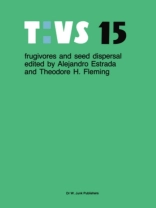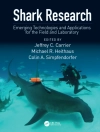A wide variety of plants, ranging in size from forest floor herbs to giant canopy trees, rely on animals to disperse their seeds. Typical values of the proportion of tropical vascular plants that produce fleshy fruits and have animal-dispersed seeds range from 50-90%, depending on habitat. In this section, the authors discuss this mutualism from the plant’s perspective. Herrera begins by challenging the notion that plant traits traditionally interpreted as being the product of fruit-frugivore coevolution really are the outcome of a response-counter-response kind of evolutionary process. He uses examples of congeneric plants living in very different biotic and abiotic environments and whose fossilizable characteristics have not changed over long periods of time to argue that there exists little or no basis for assuming that gradualistic change and environmental tracking characterizes the interactions between plants and their vertebrate seed dispersers. A common theme that runs through the papers by Herrera, Denslow et at. , and Stiles and White is the importance of the ‘fruiting environment’ (i. e. the spatial relationships of conspecific and non-conspecific fruiting plants) on rates of fruit removal and patterns of seed rain. Herrera and Denslow et at. point out that this environment is largely outside the control of individual plant species and, as a result, closely coevolved interactions between vertebrates and plants are unlikely to evolve.
Alejandro Estrada & T.H. Fleming
Frugivores and seed dispersal [PDF ebook]
Frugivores and seed dispersal [PDF ebook]
قم بشراء هذا الكتاب الإلكتروني واحصل على كتاب آخر مجانًا!
لغة الإنجليزية ● شكل PDF ● ISBN 9789400948129 ● محرر Alejandro Estrada & T.H. Fleming ● الناشر Springer Netherlands ● نشرت 2012 ● للتحميل 3 مرات ● دقة EUR ● هوية شخصية 4665144 ● حماية النسخ Adobe DRM
يتطلب قارئ الكتاب الاليكتروني قادرة DRM












